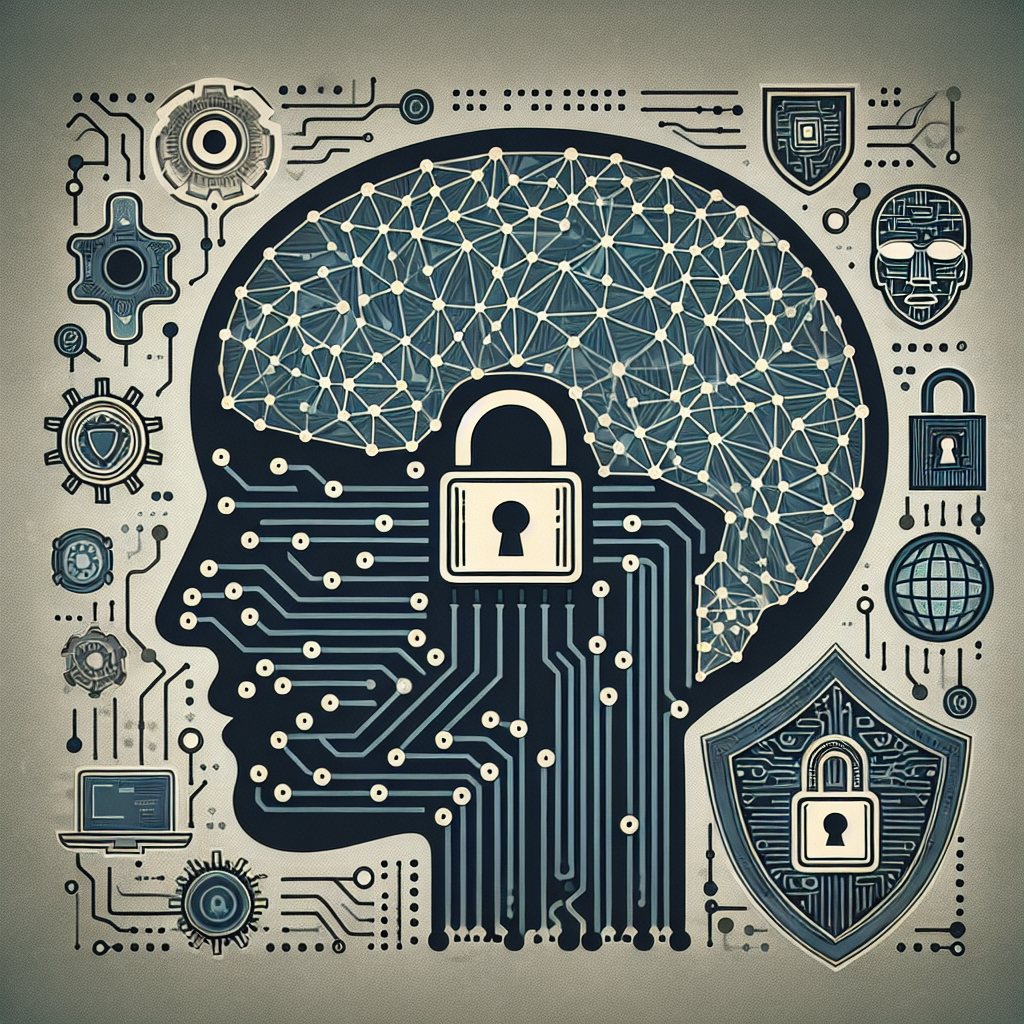In today’s digital age, cybersecurity is more important than ever. With the increasing number of cyber attacks and data breaches, businesses and individuals need to be vigilant in protecting their sensitive information. One of the key technologies that is helping to enhance cybersecurity is artificial intelligence (AI). AI development in cybersecurity has the potential to revolutionize how we protect our data and networks from malicious actors. In this article, we will discuss the role of AI in cybersecurity, its benefits, challenges, and how it is shaping the future of cybersecurity.
The Role of AI in Cybersecurity
AI has the ability to analyze massive amounts of data and detect patterns that humans may not be able to identify. This can be particularly useful in cybersecurity, where threats are constantly evolving and becoming more sophisticated. AI can help to identify potential threats in real-time and respond to them before they cause any damage.
One of the key areas where AI is being used in cybersecurity is in threat detection. AI algorithms can analyze network traffic, logs, and other data sources to identify potential threats and vulnerabilities. This can help organizations to proactively protect their systems and data from cyber attacks.
AI can also be used in incident response, where it can help to automate the process of identifying and containing a cyber attack. By using AI-powered tools, organizations can respond to incidents more quickly and effectively, reducing the impact of the attack.
Another area where AI is being used in cybersecurity is in fraud detection. AI algorithms can analyze patterns of behavior to detect fraudulent activities, such as credit card fraud or identity theft. This can help organizations to protect their customers’ data and reduce the risk of financial loss.
Benefits of AI Development in Cybersecurity
There are several benefits to using AI in cybersecurity. One of the key benefits is the ability to analyze vast amounts of data quickly and accurately. AI algorithms can sift through terabytes of data in seconds, identifying potential threats and vulnerabilities that humans may have missed.
AI can also help to improve the accuracy of threat detection. By using machine learning algorithms, AI can learn from past incidents and adapt its detection capabilities to new threats. This can help to reduce false positives and improve the overall effectiveness of cybersecurity measures.
Another benefit of AI in cybersecurity is the ability to automate repetitive tasks. By using AI-powered tools, organizations can streamline their cybersecurity processes, freeing up human analysts to focus on more strategic tasks. This can help to improve efficiency and reduce the risk of human error.
Challenges of AI Development in Cybersecurity
While AI has the potential to revolutionize cybersecurity, there are also challenges that need to be addressed. One of the key challenges is the potential for AI algorithms to be manipulated by malicious actors. If cyber criminals are able to compromise AI systems, they could use them to launch more sophisticated and targeted attacks.
Another challenge is the lack of transparency in AI algorithms. Because AI systems are based on complex machine learning algorithms, it can be difficult to understand how they make decisions. This can make it difficult for organizations to trust the results of AI-powered tools and may limit their adoption.
Additionally, there is a shortage of skilled AI professionals in the cybersecurity industry. As AI becomes more prevalent in cybersecurity, organizations will need to invest in training and development to ensure that they have the necessary expertise to leverage these technologies effectively.
The Future of AI in Cybersecurity
Despite these challenges, the future of AI in cybersecurity looks promising. As AI technologies continue to evolve, we can expect to see more advanced and sophisticated tools that can help organizations to protect their data and networks from cyber threats. AI has the potential to revolutionize how we approach cybersecurity, making it more proactive, efficient, and effective.
FAQs
Q: How does AI help in threat detection?
A: AI algorithms can analyze network traffic, logs, and other data sources to identify potential threats and vulnerabilities. This can help organizations to proactively protect their systems and data from cyber attacks.
Q: What are the benefits of using AI in cybersecurity?
A: Some of the key benefits of using AI in cybersecurity include the ability to analyze vast amounts of data quickly and accurately, improve the accuracy of threat detection, and automate repetitive tasks to improve efficiency.
Q: What are the challenges of AI development in cybersecurity?
A: Some of the key challenges of AI development in cybersecurity include the potential for AI algorithms to be manipulated by malicious actors, the lack of transparency in AI algorithms, and the shortage of skilled AI professionals in the cybersecurity industry.
Q: What does the future hold for AI in cybersecurity?
A: The future of AI in cybersecurity looks promising, with more advanced and sophisticated tools expected to help organizations protect their data and networks from cyber threats. AI has the potential to revolutionize how we approach cybersecurity, making it more proactive, efficient, and effective.

